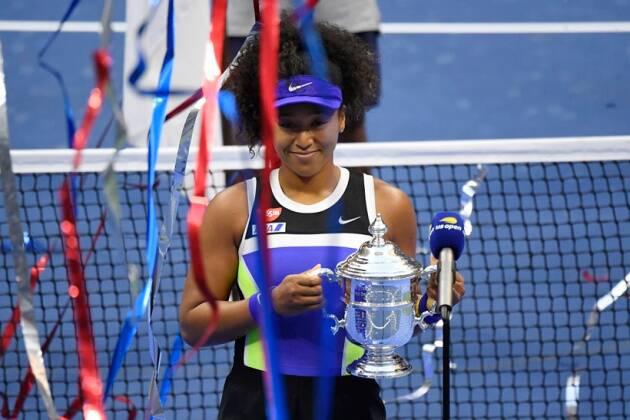It was interesting to read Naomi Osaka’s social media statements on why she would skip the mandatory press conferences at next fortnight’s French Open at Roland Garros.
Winner of four Grand Slam titles, the 23-year-old Japanese superstar who is based in the US, is indeed a gutsy player with great charisma. Her on-court and off-court presence are impressive, in equal measure.
Yet, when the diva of women’s tennis cited “mental health” as a reason for not wanting to do the press conferences at the French Open, it did not resonate. Mental health is a huge subject which is discussed in the world of sport very freely the last few years.
In almost every sport, starting from cricket, players have spoken about it. Some players who have themselves been ‘victims’ have mustered the courage to speak up. At the same time, icons like Virat Kohli have also spoken about mental health in a motivational way.
Everyone knows Osaka herself does not have any mental health issues, which is very good. The reasoning she has given for not wanting to attend the press conferences in Paris is how the questions are usually banal and it actually affects the losing player.
Having attended over a dozen Grand Slams at Wimbledon and the Australian Open, I am convinced the media is never there to make players cry. They ask questions and expect answers. There are innumerable instances when the media interaction moderator ensures any question not to the liking of the player is left aside.
The ATP Tour, which governs mens’ tennis and the WTA, which looks after womens’ tennis are extremely professional bodies. They care for the players immensely.
What Osaka has said really does not make sense, best exemplified by King Rafael Nadal’s statement. Winner of 20 Grand Slam titles, Nadal has spoken about how important the relation with the media is. To be sure, the media interactions give the journos a chance to understand tennis from a different perspective.
For example, if the top seed is up match point and blows it, the media does not celebrate. He or she (media) wants to know what the player underwent. They ask questions only to understand what happened at that point of time where a player frittered away the advantage. Tennis writers use a phrase called “choke” which means the player is unable to handle pressure.
Choking, stage fright, not able to string together a few crucial points which can be decisive, are beyond even a coach’s understanding. It is the mental trainer, mind trainer, or sports psychologist who can provide an insight into what a player undergoes, across all sporting disciplines. And that is what in a layman’s term we call as mental toughness.
Osaka is a tough player, physically and mentally. Nobody is going to buy her argument she will avoid press conferences so that other players are not mentally tormented. At this point of time, Osaka cannot slink away, as the WTA will not let her bunk pressers. For the record, Osaka has never gone beyond the third round at the French Open.
Osaka would do well to speak to two players who can offer plenty of insight into how they handled the demons in the head — Ivan Lendl, who failed to win Wimbledon — and Crazy Croat Goran Ivanisevic. Goran did finally win Wimbledon in 2001 as a wild card. But before that he faced many moments where even the spectator felt like crying after he suffered a bizarre loss.
Lendl or Goran did not skip press conferences. Nor did they talk of mental health issues those days. Today, both these men are top-notch coaches who will be teaching their wards more than forehand and backhand. And it has to do with what goes on in the mind in a tight situation in a match.
